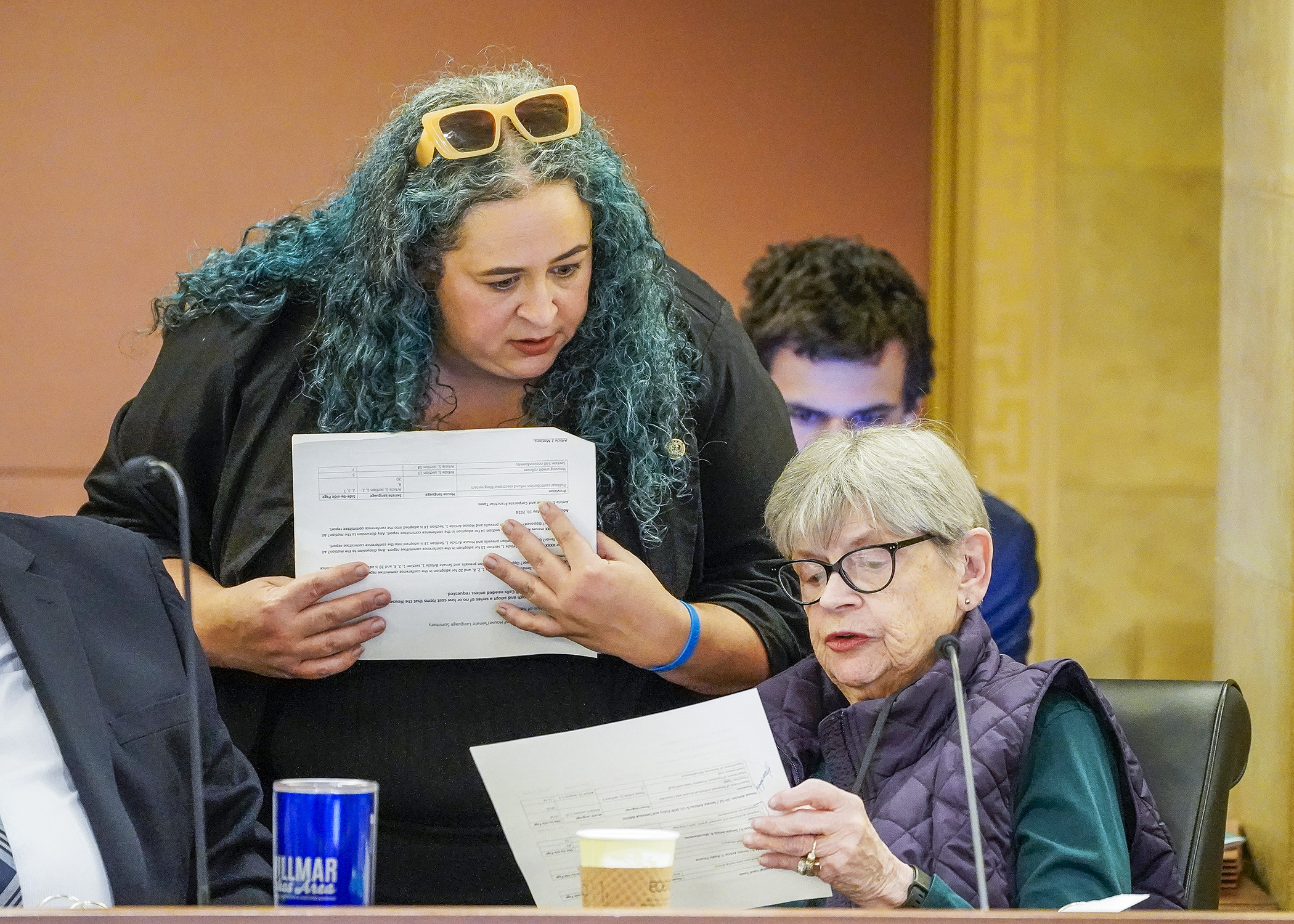House, Senate tax conferees convene to discuss differences

If there’s one thing the chairs of the House and Senate Taxes committees agree on, it’s the value of the child tax credit they created last year.
“I don’t call anything historic anymore, because it’s an overused word,” said Sen. Ann Rest (DFL-New Hope). “But it really is extraordinary what Minnesota has accomplished. The federal government gave us a boost [with its child tax credit amount tripling in 2021], then dropped us. And I’m glad to see that states are saying, ‘We’re not dropping this initiative to reduce child poverty.’”
The idea of giving Minnesotans under a certain income level $1,750 for each child in their household was an initiative born in the House in 2023 and absent from last year’s Senate tax bill, but added to the final bill during the conference committee process. And now both Rest and the chair of the House Taxes Committee, Rep. Aisha Gomez (DFL-Mpls), are calling it the crowning achievement of the 2023 tax law.
So what’s next for the child tax credit?
That’s the first item on the agenda for Gomez and Rest as they return to the negotiating table, along with eight of their colleagues, and seek to bridge the differences between the tax bills passed by the House and Senate, which are two similar but sometimes disparate versions of HF5247.
The conference committee had its first meeting on Friday, and a glance at the spreadsheet shows a $22.4 million chasm in the current biennium between what the House and Senate propose for the child tax credit account.
Why the gap? Well, the House wants to raise the top age for receiving the credit to 18 years old from the current 17. That alone accounts for $7.8 million of the difference. The Senate also places some further income limitations on the credit.
But when you consider that the Senate tax budget contains $22.6 million to account for sales tax exemptions for local construction projects, the two tax bills aren’t all that far apart. For the 2024-25 biennium, the House bill meets the General Fund target of $53 million in refunds, aids and credits agreed to by Gov. Tim Walz and legislative leadership, while the Senate bill comes in at $50.6 million. But both Gomez and Rest said that they believe they can narrow the gap relatively quickly.
“I’m not talking about splitting the difference,” Rest said. “Instead looking at where we can keep our priorities, but let go of a little of the money.”
The policies laid out in the two bills would produce gaps in both what the government takes in and what it sends out. The House bill would produce an estimated $7 million more in revenue during fiscal 2024-25, while the Senate would send out $4.6 million more in aids and credits.
Two items in the House bill but not in the Senate are $5 million to launch a state-run direct free file system for tax filers and $4.4 million in local homelessness prevention aid, both totals for the current biennium.
[MORE: View a side-by-side comparison]
In 2023, the two chambers came to the table with disparate views about local sales taxes. This year, the Senate is focused on providing sales tax exemptions for materials used in local construction projects, something that doesn’t appear in the House bill. During the current biennium, the Senate would offer exemptions to 33 projects at a General Fund cost of $22.6 million.
Before Friday’s meeting concluded, the committee adopted 21 provisions that were the same or similar between the two bills. Members intend to meet again Saturday morning.
Related Articles
Search Session Daily
Advanced Search OptionsPriority Dailies
Speaker Emerita Melissa Hortman, husband killed in attack
By HPIS Staff House Speaker Emerita Melissa Hortman (DFL-Brooklyn Park) and her husband, Mark, were fatally shot in their home early Saturday morning.
Gov. Tim Walz announced the news dur...
House Speaker Emerita Melissa Hortman (DFL-Brooklyn Park) and her husband, Mark, were fatally shot in their home early Saturday morning.
Gov. Tim Walz announced the news dur...
Lawmakers deliver budget bills to governor's desk in one-day special session
By Mike Cook About that talk of needing all 21 hours left in a legislative day to complete a special session?
House members were more than up to the challenge Monday. Beginning at 10 a.m...
About that talk of needing all 21 hours left in a legislative day to complete a special session?
House members were more than up to the challenge Monday. Beginning at 10 a.m...